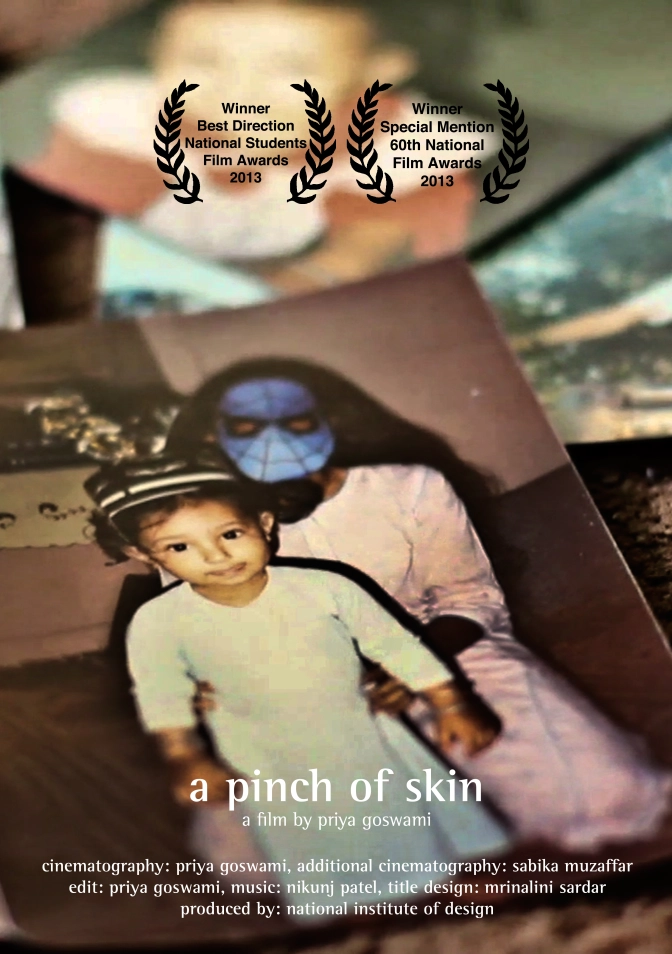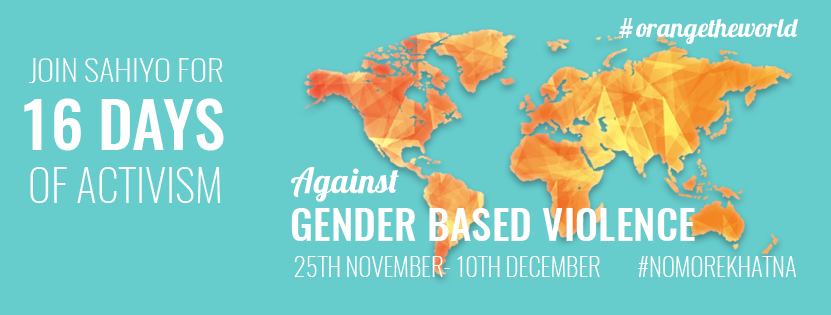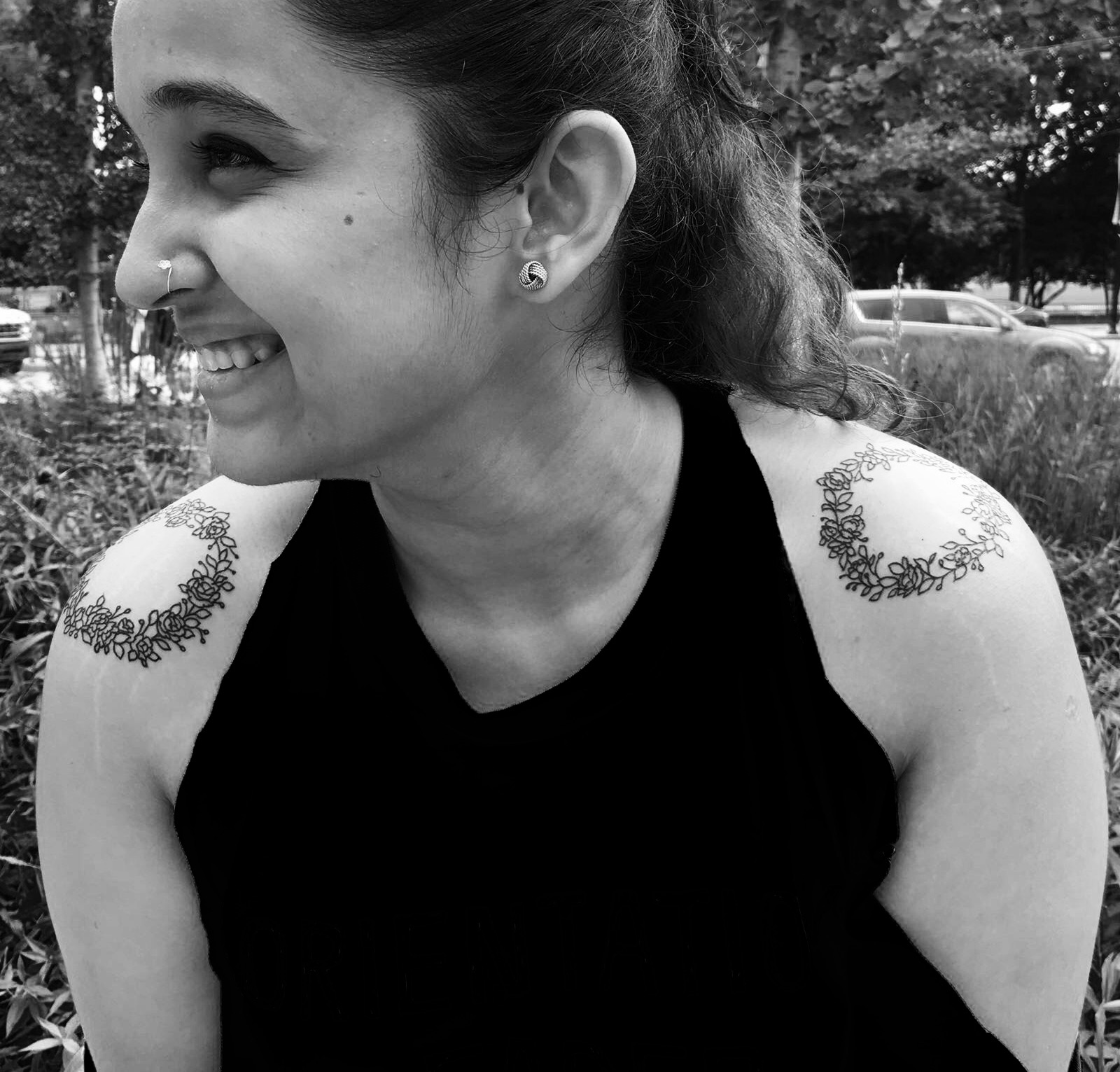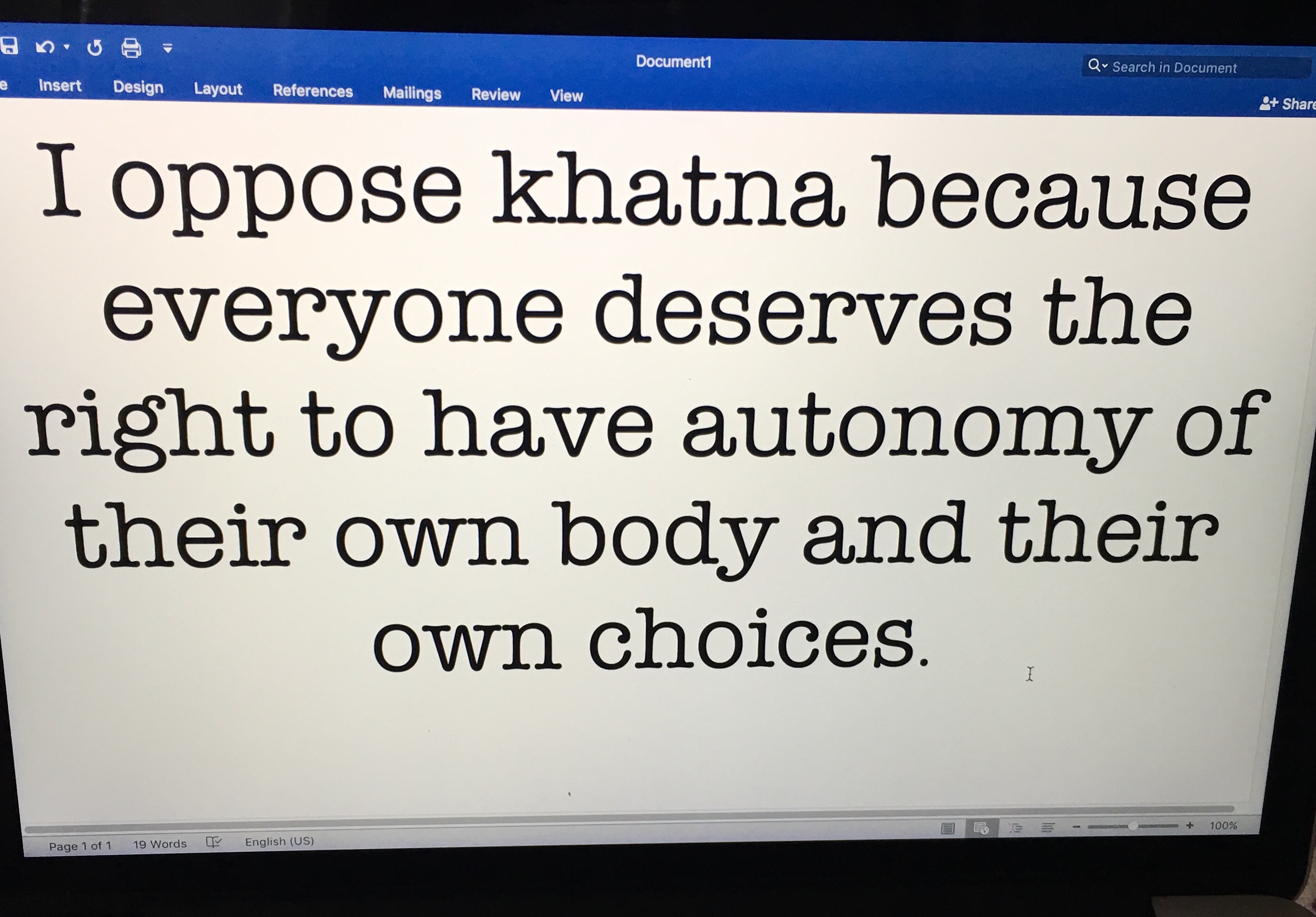Around the world, one out of every three women experiences some form of gender-based violence. And every year, the United Nations runs an international campaign to bring attention –and funds – to this universal cause. The campaign is called ’16 Days of Activism Against Gender-based Violence’ and takes place between November 25 and December 10.
Why these two particular dates? Because November 25 is the International Day for the Elimination of Violence Against Women, and December 10 is marked as Human Rights Day. Every year, governments, UN agencies, and civil society organisations utilise these 16 days to campaign for public awareness, action, and fund-raising towards all forms of violence against women.
This year’s global theme is ‘Orange the World’, highlighting orange as a bright and optimistic colour to signal a future free of gender-based violence. Female Genital Cutting (FGC) is also a form of violence against women, and Sahiyo is excited to announce its own 16-day “orange” campaign to raise awareness about the issue. Read on to know what we will be doing, and how you can participate:
1) ‘STOP FGC’ badges:
If you feel strongly about bringing an end to Female Genital Cutting or Khatna, get hold of Sahiyo’s new ‘Stop FGC’ badge and pin it proudly on your Facebook, Twitter, Whatsapp, Instagram or Snapchat profiles. The message is simple, orange and eye-catching, and will serve as a great way to begin conversations about khatna with those around you during – and even after – the 16 Days of Activism.
Here is a downloadable version of the pin:

We also encourage you to pin these badges offline: simply print out the image above, cut around the orange circle and pin it on your shirt or bag! If you’re in Mumbai and can make it to Friday’s screening of A Pinch of Skin (see below), you could also request a physical badge from the Sahiyo members present.
2) Screening + discussion of ‘A Pinch of Skin’:
On Day 1 of the 16 Days campaign, those in Mumbai can attend a screening of A Pinch of Skin – a National Award-winning 2013 documentary by Sahiyo co-founder Priya Goswami. This was the first film to highlight the practice of Female Genital Cutting in the Bohra community.

The film will be screened at the two-day SAMABHAV film festival organised by Men Against Violence and Abuse, an NGO doing crucial work to sensitise boys and men about gender violence. And after the screening, don’t miss the opportunity to discuss FGC and the film with Sahiyo members!
WHAT: A Pinch of Skin, a documentary by Priya Goswami
WHEN: November 25, Friday. 12.15 pm to 1.15 pm
WHERE: Dr. BMN College of Home Science (SNDT Matunga), Matunga Central (behind Maheshwari Udyan bus depot, near Aurora Talkies)
The screenings are open to all but don’t forget to register your name with MAVA’s Project Coordinator Darshan by calling him on 0-9833733048
SAMABHAV is a film festival celebrating the rights of all genders, and the two-day event will include a host of other short films, features, and documentaries on the theme of Gender, Sexuality, Masculinity, and Relationships. Check out the details here.
3) 16 Days, 16 Stories:
Sahiyo’s website, as many of you know, is a story-sharing platform for anyone who feels strongly about bringing the practice to an end. In the past year, we have shared scores of personal stories and narratives of women who have been circumcised, or whose loved ones have been cut; women who felt traumatised and violated, or those who didn’t, but still believe that there is no place for FGC in the world. We have also published heartfelt stories by Dawoodi Bohra fathers who don’t want their daughters cut anymore.
From November 25 to December 10, Sahiyo will publish 16 such personal stories – one story each day – to raise awareness and remind survivors that they are not alone. Some are new, while others are powerful stories that we published in the past.
Check out Sahiyo’s website, Facebook, and Twitter to read and share these stories. And if you would like to submit your own story, mail us at This email address is being protected from spambots. You need JavaScript enabled to view it..
4) US Summit to End FGM/C:
From November 30 to December 1, Sahiyo co-founders Mariya Taher and Insia Dariwala will participate in the US Summit to End FGM/C in Washington DC. This unique conference has been organised by Equality Now, Safe Hands for Girls, and a host of other organisations.
The Summit will bring together anti-FGC activists, survivors, religious leaders, government heads, and other stakeholders from around the world, and discussions will have a special focus on strategies to bring an end to FGC among diaspora communities in the United States. Stay posted on Sahiyo’s social media for Summit updates from Mariya and Insia! There will also be a live stream from the Summit itself, click here to tune into the conference!








